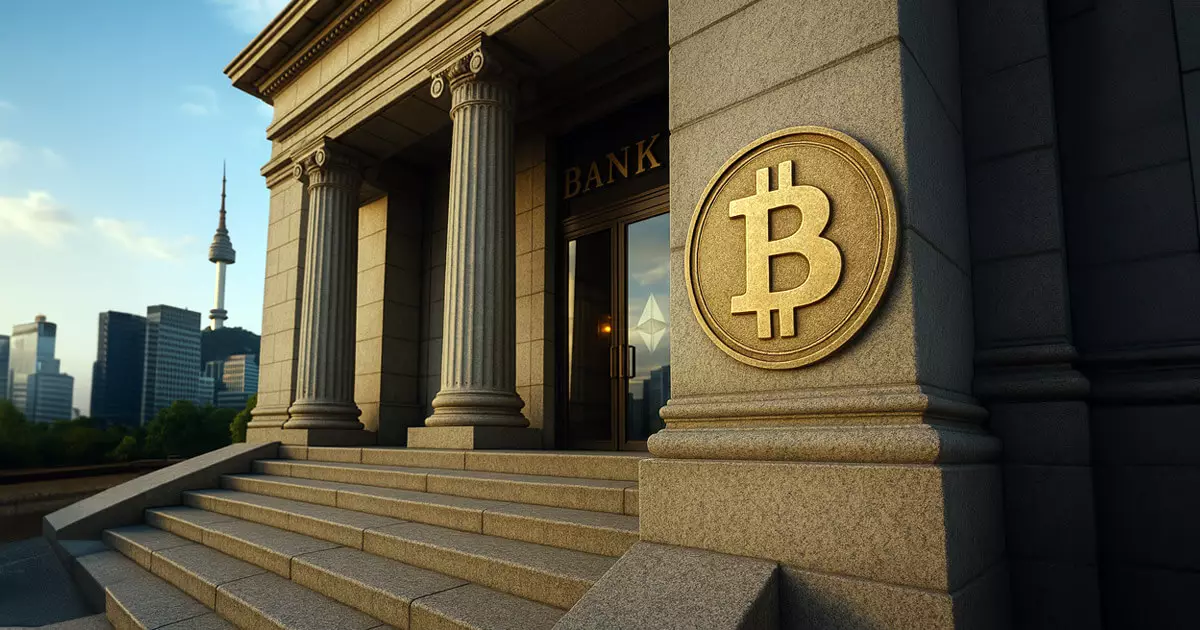South Korea stands at a crossroads in its approach to cryptocurrency regulations, particularly when it comes to banking partnerships. Major banks are now vocalizing the urgent need to dismantle the archaic one-bank-per-exchange framework that has long constrained both consumers and innovation in the crypto space. Executives from leading financial institutions recently convened to advocate for a more flexible system, one that wouldn’t stifle competition and choice. This push is not merely corporate wheeling and dealing; it’s a response to the rapid evolution of technology and finance that demands a more responsive policy environment.
A Stifling Impact on Innovation
The one-to-one banking rule implemented in 2018 was intended to bolster anti-money laundering measures. However, it has instead created a stifling atmosphere for innovation. By requiring each crypto exchange to partner with only one bank, South Korea’s regulations have inadvertently hampered competition. This creates a scenario where users have limited options and exchanges find themselves at the mercy of their singular banking partner. This is where the fundamental problem lies: the inflexibility of the existing framework inhibits the adoption of new technologies and financial products that could benefit consumers and businesses alike.
Operational Risks: A Looming Crisis
A particular concern among industry insiders and lawmakers has surfaced regarding the risks tied to the exclusive Exchange-Bank relationships. Lawmakers are ringing alarm bells about systemic vulnerabilities, especially as they relate to giant platforms like Upbit. With a staggering 20% of deposits at K Bank sourced exclusively from Upbit, there is an acute risk that any disruption could spark a liquidity crisis. Such risks underscore the urgent need for policy reform. Allowing multiple banks to partner with exchanges can dilute this operational risk, thereby fostering a more resilient financial ecosystem.
Consumer Choice: A Right, Not a Privilege
Consumers today demand more than just compliant and secure transactions; they seek choice and convenience. The current regulations restrict banking services, ultimately leading to a lackluster experience for customers. Allowing more banks to engage with a single crypto exchange would not only enhance consumer flexibility but would also compel banks to improve their offerings. The competitive spirit is essential in any market, especially one driven by technology and innovation. South Korean banks must recognize that consumer choice is not merely desirable; it’s critical for a vibrant financial landscape.
A Call for Empowerment, Not Control
Instead of dictating terms that serve to restrict innovation and consumer rights, regulators should facilitate an environment that empowers both banking institutions and crypto exchanges. This can only happen if laws are updated to reflect contemporary realities in finance and technology. The need to revise these policies is echoed not just by bankers but also by a growing number of consumers who demand access to a broader array of financial services. The archaic rule that dictates a one-to-one relationship between banks and exchanges is a relic of the past, and it’s high time for South Korea to evolve.
The Path Forward
As South Korea considers its next steps in crypto regulation, the emphasis should be on creating a more robust, flexible, and innovation-friendly environment. By enabling multiple banking partners for exchanges, not only do we mitigate systemic risks, but we also create a fertile ground for financial growth and technological advancements. The government must reassess its role in fostering innovation rather than attempting to stifle it through outdated regulatory frameworks. The future of finance in South Korea depends on it.















Leave a Reply